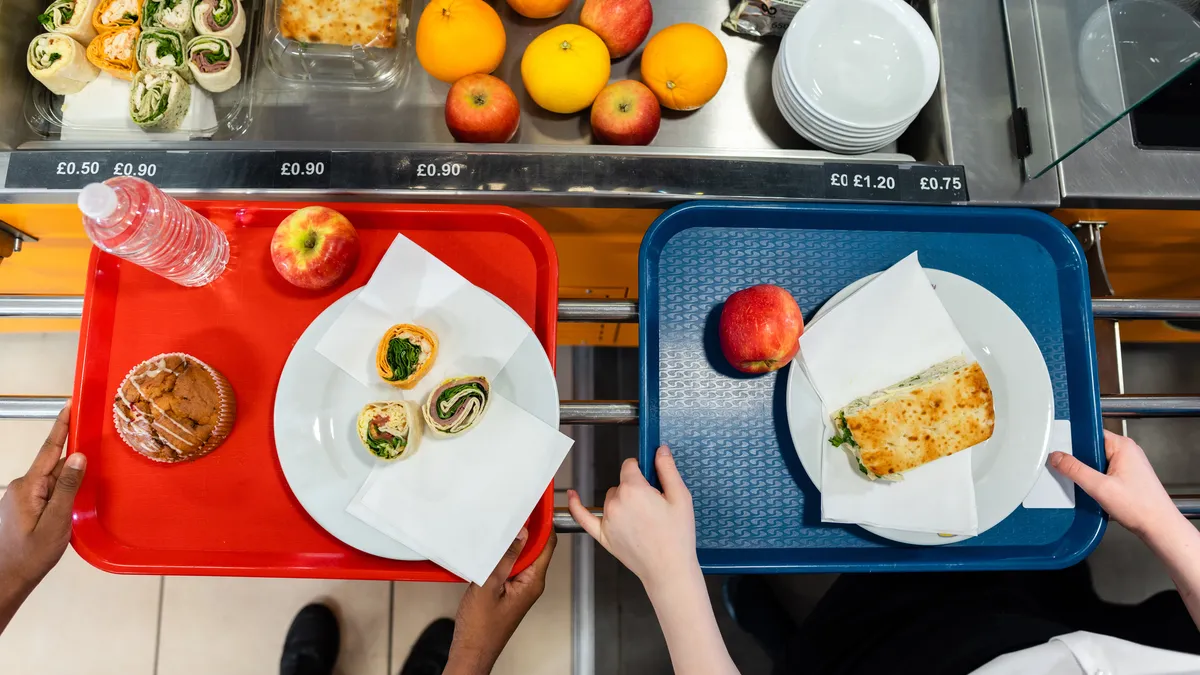Starting in the 2027-28 school year, schools will be prohibited from charging junk fees to low-income families for meals served through the School Breakfast Program and the National School Lunch Program, the U.S. Department of Agriculture announced Friday.
The new policy will only apply to students who are eligible for free and reduced-price school meals, but the USDA wants to eventually expand the ban on school meal junk fees for more students.
“Today’s action is a first step. USDA will examine fees charged to families with a goal of eliminating online junk fees for all families regardless of income level to further remove barriers to access healthy meals,” the federal agency said in a statement on Friday.
Junk fees are online processing fees that come with purchasing school meals as more schools shift to cashless operations.
The USDA said the new policy comes in response to a July report from the Consumer Financial Protection Bureau. That report found 87% of 25,000 sampled school districts contract with payment processors to allow electronic payments for families' expenses like school lunches. Each time money is added to an account, an average of either $2.37 or 4.4% of the total transaction is added in these junk fees, according to CFPB.
By law, the USDA noted, students eligible for reduced-price meals cannot be charged more than 30 cents for breakfast and 40 cents for lunch. With processing fees, however, some families may wind up paying more than that when they deposit money into an online school account to cover their children's meals, the agency said.
“The Department of Agriculture’s action applies to the 1 million children who receive reduced priced meals and lays the foundation to eliminate these junk fees for all 30 million children that receive healthy meals at school every day,” said Lael Brainard, national economic advisor, in USDA's Friday statement.
While the USDA’s move to eliminate school meal junk fees is an important step forward, Agriculture Secretary Tom Vilsack said in the statement, “the most equitable path forward is to offer every child access to healthy school meals at no cost.” Vilsack pledged to continue working with Congress toward that goal.








 Dive Awards
Dive Awards






